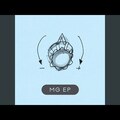Martin Gore is easing into the day in Santa Barbara, California, the place he has called home for the last 15 years. “It’s nice and sunny,” he reports, “though unfortunately we are still in the middle of a drought and we need rain. The rainy season was in January and February, and it rained once in April, but I actually think that might be it for the year now.”
We are convening to talk about MG, a solo instrumental album recently released on Mute that constitutes only Gore’s second solo album release. In it the Depeche Mode lynchpin looks to capitalise on his success through the similarly minimal VCMG, his 2012 collaboration with old band mate Vince Clarke, on which more later.
Gore has said in previous interviews how MG could in effect be the soundtrack to an imagined movie, so what sort of film does he have in mind? “It was only really a vague idea,” he says, backtracking a little. “After I had a few tracks ready I shut my eyes and saw what images came to mind. It was more a sci-fi film, but I wasn’t thinking about an actual picture – more a feeling.”
MG is a substantial album, with 16 tracks clocking in at five minutes under the hour. At times it feels as though Gore is writing for an electronic orchestra, and we hear a number of different and vivid shades as the album progresses. “Each track is different,” he says, “and I did try to make it as diverse as possible. An electronic instrumental album like this is a challenge, because it’s easy to get into making the tracks too long and stretching the listener. I was pleased with the results as they are, though.”
MG is every bit as expressive as its author’s songwriting for Depeche Mode. “Yeah, I think I said that in the press release,” he acknowledges. “I like all genres of music, and the power of music within those genres, just as I realise the power of songs and lyrics.”
He is of course not new to the idea of writing instrumentals, having penned a number
of them for the band. But they now have a different meaning. “Over the 35 years Depeche Mode have been together I have written a lot of instrumentals, going back to Muff on Speak And Spell, but there are numerous instrumental tracks and B-sides. That carried on until Sounds Of The Universe, with at least one per album if not more, I don’t know how many. Yes, that is a lot of tracks, but what was new here was writing a whole album and keeping that vision in mind, knowing it was going to be a whole album.”
The seeds for MG were sown with the band’s previous album. “I did have a few tracks, three or four, that were left over from the Delta Machine writing period, because we had so many vocal tracks that we pulled together for that album. That was where the idea for MG came from.”
Gore recorded the album using a routine that has served him well all through his career. “I go to the studio whenever I can, whenever I’ve got something on, on most days during the week. I don’t do ridiculous hours but I do try and get there by 11 or 12 and stay there until 6 or 7, every day of the week.”
He confirms this to be the result of a continual urge to make music. “I think I feel it more than I ever have these days. I’ve had periods where I’ve been fairly lazy but over the last 10 years I’ve got more into working on a daily basis.” Is it the secret to his and the band’s success? Not in his eyes. “I don’t think that’s the reason. I think if you go back to the 1980s we put an album out virtually every year, one live album and a greatest hits collection. It was seven studio albums in 10 years that we managed, I think.”
Reflecting on that busy streak has led him to a realisation. “Maybe, in a way, you don’t need to go in the studio all the time, maybe it’s the inexperience and novelty of youth, the passion of youth, where you’re brimming with ideas. The idea of putting an album out like that now with the band, it’s never going to happen. You have different priorities, and we have families now.”
Gore himself has a partner and three children to look after. “Yeah, and I find that in the time between albums, that not only is the family important but the quality is important as well.” Does that impact on his songwriting? “Not so much.” But is there a continual pressure to reach the standard of songs such as Personal Jesus, Enjoy The Silence or Strangelove, for instance? “Maybe after writing songs after 35 years it’s hard to come up with that on a regular basis. But I think I’m fortunate that I’ve only felt the so-called writers’ block once, and that’s not bad over that period of time.”
Most of his contemporaries would be envious, and even then Gore appears to have dealt with the problem relatively quickly. “It was around the time of the Exciter album, during the writing process.” Was it a big worry? “I usually work on my own, just in the studio, getting the songs to a demo stage before presenting them to the band. This time I used a couple of friends, Gareth Jones and Paul Freegard, who did additional production for the album. I would come up with vocal melodies and chords to get inspiration from having other people around, and by doing that we managed to work through it.”
Gore is a positive presence in conversation, and it is easy to imagine him juggling a few different projects, all the product of a busy mind. The reality is different, however. “I find it very hard to multitask,” he admits, “and I find it very distracting to do one thing and flip flop between different projects.” Is time off a necessity, then, so that he comes back fresher? “It can help,” he agrees. “I literally started writing songs two or three weeks ago, but at the same time I decided to change my computer set-up, and so I’ve just finished one song. The computer just came with Yosemite installed, so I had to sort it out. It’s been a bit of a two week struggle, so as we speak I’ve just finished one song for the band.” For the new album? “That’s right!”
For now, then, Gore is back into Depeche Mode, while keeping his ears open for other suitable projects, such as VCMG. Yet working with Clarke again would not seem to be a possibility, short term at least. “You know it’s something we never really spoke about,” he muses, “we just enjoyed doing it. I quite like the idea of doing different projects; it’s nice to be doing something unexpected. I think people probably expected it to be a techno album, but I think that was the big things I was trying not to do.”
With Gore resolutely based in the US for writing, recording and a good deal of touring, he doesn’t get much time to consider the British political climate, even around election year – but does keep an eye on his native country from afar. “I’ve been here now in Santa Barbara for 15 years, and I follow things up to a point, and watch the BBC News most mornings, but I do feel quite isolated from England.”
Will it always be that way? “At this moment in time I can’t see it changing, but it’s a ‘never say never’ thing. This isn’t a joke but I’ve always said I’ve never experienced an earthquake, and if there’s one here that might be the thing that makes me move!” He does, though, acknowledge an Englishness creeping in to the title of his album, MG being a recognised and revered automobile marque. “Obviously I was aware of it, but it’s more of a coincidence than anything, really.”
With talk of collaborations, does he retain the idea of completing a film soundtrack? “I’ve always said that if the right film came along at the right time when the band is on a break I would love to do that, as we are on this four year cycle with Depeche Mode.” Clearly the band remains his top priority. “It seems to be the way we’ve worked for a long time,” he considers. “I guess it could run to five years at a time – but I doubt it would ever be three years.”
A cikkek eredetijei itt olvashatóak:
http://www.musicomh.com/features/interviews/depeche-mode-martin-gore





